Processing Properties of Titanium Alloy Products-Cutting, Grinding, Extrusion, Forging, Casting Technology
[keywords] titanium alloys, processing properties of titanium alloy products, cutting, grinding, extrusion, forging, casting process of titanium alloy parts
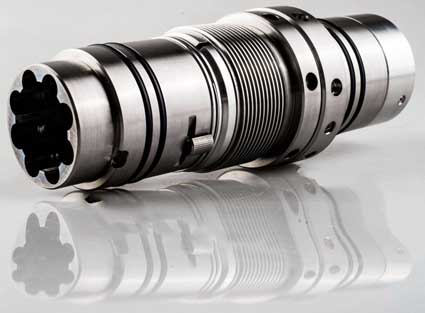
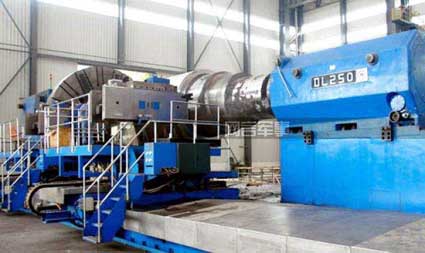
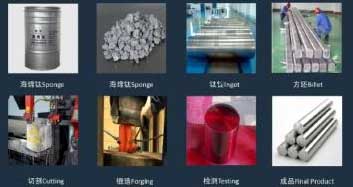
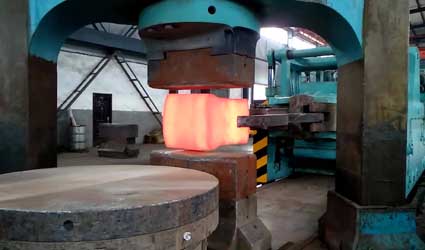
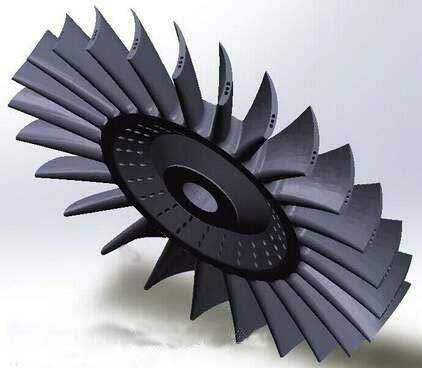
Machinability of Titanium Alloy Cutting Parts
Titanium alloy has high strength and high hardness, so it requires high processing equipment, and the mold and tool should have high strength and hardness. When cutting, the contact area between chips and rake face is small, and the stress of tool tip is large. Compared with 45 steel, the cutting force of titanium alloy is only 2/3—3/4, but the contact area between the chip and the rake face is smaller (only 1/2-2/3 of 45 steel), so the tool The cutting edge is subjected to a greater stress, and cutting edge is prone to wear; Titanium alloy has a large friction factor and low thermal conductivity (only 1/4 and 1/16 of iron and aluminum, respectively); The contact length of the tool with the chip is short, and the cutting heat accumulates in a small area near the cutting edge and is not easily dissipated. These factors make the titanium alloy have a high cutting temperature, which causes the tool wear to accelerate and affect the processing quality. Due to the low elastic modulus of the titanium alloy, the workpiece rebounds greatly during the cutting process, which is likely to cause the wear of the tool flank and the deformation of the workpiece; Titanium alloy has high chemical activity at high temperature, and it is easy to chemically react with gas impurities such as hydrogen and oxygen in the air to form a hardened layer, which further aggravates the wear of the tool; In titanium alloy machining, the workpiece material is easily bonded to the tool surface, and the cutting temperature is high, so the tool is prone to diffusion wear and bond wear.

Grinding performance of titanium alloy products
Titanium alloys are active in chemical properties, easy to affinity and adhere to abrasives at high temperatures, blocking grinding wheels, resulting in worsening of grinding wheels, reducing grinding performance and ensuring grinding accuracy. The wear of grinding wheel also increases the contact area between grinding wheel and workpiece, resulting in deterioration of heat dissipation conditions, sharp increase of temperature in grinding area, formation of greater thermal stress in grinding surface layer, resulting in local burns of workpiece and grinding cracks. Titanium alloy has high strength and high toughness, which makes the grinding chips difficult to separate during grinding, the grinding force increases, and the grinding power consumption increases accordingly. Titanium alloys have low thermal conductivity, low specific heat, and slow heat transfer during grinding, resulting in heat build-up in the arcing zone, causing a sharp rise in the temperature of the grinding zone.

Titanium extrusion processing performance
In extrusion processing of titanium and titanium alloys, high extrusion temperature and high extrusion speed are required to prevent excessive temperature drop, and the contact time between high temperature billet and die should be shortened as far as possible. Therefore, a new type of heat-resistant die material should be selected for extrusion die, and the transportation speed of billet from heating furnace to extrusion cylinder should also be fast. In view of the fact that metals are easily contaminated by gases during heating and extrusion, appropriate protective measures should be applied. Suitable lubricants should be selected during extrusion to prevent bonding die, such as sleeve extrusion and glass lubrication extrusion. Due to the large deformation heat effect of titanium and titanium alloy, the thermal conductivity is poor, so special attention should be paid to prevent overheating during extrusion deformation. The extrusion process of titanium alloy is more complicated than the extrusion process of aluminum alloy, copper alloy and even steel, which is determined by the special physical and chemical properties of titanium alloy. In the conventional hot back extrusion molding of titanium alloy, the mold temperature is low, the surface temperature of the billet which is in contact with the mold is rapidly lowered, and the temperature inside the billet is increased due to the deformation heat. Since the thermal conductivity of the titanium alloy is low and the surface temperature is lowered, the heat of the inner layer blank cannot be transferred to the surface layer in time, and the surface hardened layer may appear, so that the deformation is difficult to continue. At the same time, the surface layer and the inner layer produce a large temperature gradient, and even if it can be formed, it is easy to cause deformation and tissue unevenness.

Titanium alloy forging processing performance
Titanium alloys are very sensitive to forging process parameters. The changes of forging temperature, deformation amount, deformation and cooling rate will cause changes in the structure and properties of titanium alloys. In order to better control the structural properties of forgings, in recent years, advanced forging techniques such as hot forging and isothermal forging have been widely used in the forging production of titanium alloys. The plasticity of titanium alloy increases with the increase of temperature. In the temperature range of 1000-1200 °C, the plasticity reaches the maximum value, and the degree of deformation is allowed to reach 70%-80%. Titanium alloy forging temperature range is narrow, should be strictly controlled according to (α + β) / β transition temperature (except for casting ingots), otherwise the β grains will grow up vigorously, reducing room temperature plasticity; Alpha titanium alloys are usually forged in the (α + β) two-phase region. If the forging temperature is too high above the (α+β)/β phase change line, it will result in a β fragile phase. Both the initial forging and the final forging of the beta titanium alloy must be higher than the (α + β) / β transition temperature. The deformation resistance of titanium alloy increases rapidly with the increase of deformation speed, and the forging temperature has greater influence on the deformation resistance of titanium alloy. Therefore, conventional forging must be completed with the least cooling in the forging die. The content of interstitial elements (such as O, N, C) also has a significant effect on the forgeability of titanium alloys.

Titanium and titanium alloy casting process performance
Due to the high chemical activity of titanium and titanium alloys, it is easy to react violently with N, O and N in the air, and it is easy to react with the refractory materials commonly used in casting. The casting of titanium and titanium alloys, especially investment casting, is much more difficult than the investment casting of aluminum and steel, which can be achieved by special means. At the beginning of the development of cast titanium, the development of the casting process lags behind the pressure processing technology. Therefore, a medium-strength titanium alloy with a certain deformation, such as TiΟ6AlΟ4V, TiΟ5AlΟ2.5Sn, etc., is selected as the casting alloy material. These alloys are still widely used today. However, with the development of the titanium casting process and the application field, the performance requirements of various aspects of the cast titanium alloy are improved, and the structural complexity of the casting is increased. In the past, the argument that "all deformed titanium alloys are suitable for use as casting alloys" should be corrected. As the alloy's operating temperature and working strength increase, the amount and amount of added elements in the alloy increase accordingly. However, it is necessary to consider the casting properties of the alloy, the crystal structure of the fluidity solidification zone, the mechanical properties, etc., that is, the chemical composition of the alloy must be adjusted according to the requirements of the casting process.






